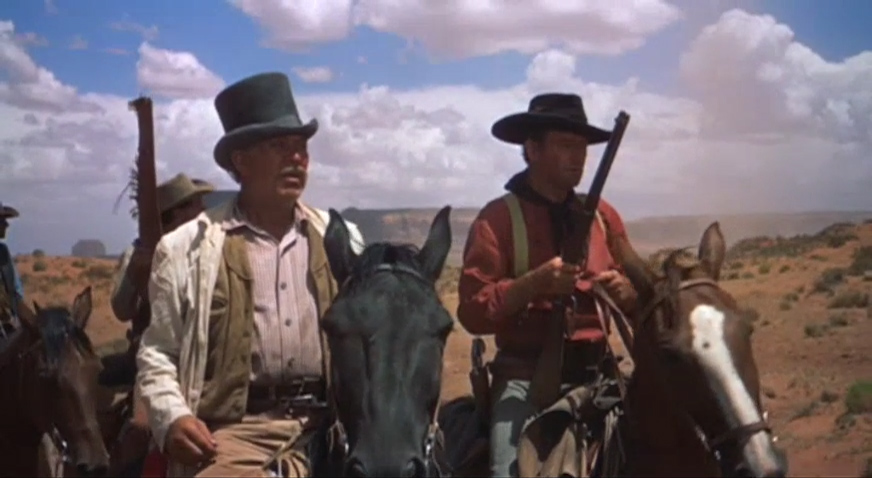Authors:
Historic Era: Era 9: Postwar United States (1945 to early 1970s)
Historic Theme:
Subject:
November 1998 | Volume 49, Issue 7


Authors:
Historic Era: Era 9: Postwar United States (1945 to early 1970s)
Historic Theme:
Subject:
November 1998 | Volume 49, Issue 7
It is a phrase so high-concept that it ought to be the title of a movie, or at least the slogan for a marketing campaign, the ultimate coming attraction. Never mind Intolerance or Citizen Kane, the real Movie of the Century would be a will-o’-the-wisp, always just about to be revealed, a hundred years in the making, cast of millions, coming soon to a theater near you. What drove movies in the past was anticipation of what the future held. In the years when Hollywood was actually producing a fairly steady flow of good-to-great movies, there was scarcely time or inclination for a backward glance.
Or else—for this impossible honor—one might take any representative slice of the old Hollywood’s product, from the twenties or the thirties or the forties according to preference. Profusion was, after all, the point. At the height of the American public’s romance with moviegoing, a night at the Orpheum was as fundamental and recurrent an activity as having dinner or going to bed; a reliable flow of cinematic pleasures was more important than any particular presentation. Tonight a double bill of a pirate adventure and a murder mystery; starting Wednesday, the screen version of a best-selling love story and a college musical. All the movies were somehow interrelated, so that even the humblest Mr. Moto thriller or Gene Autry Western had its part in the mix that likewise encompassed Gone With the Wind . Movies were not meant to live alone any more than people were.

Pushed, however, to propose a single movie for such unnatural solitary eminence, I’d have to pick the one I’ve ended up watching the most, John Ford’s The Searchers. Released in 1956, it’s a product of just that moment when —with the breakup of its distribution monopolies and the erosion of its audience by television —the studio machine finally began to come apart. It looks both ways in time, embodying all the traditional virtues of storytelling and technical command, yet expanding established limits to suggest a world of possibilities beyond what Hollywood had permitted itself.
It’s an extraordinarily generous and exploratory work, made by a director who had just turned 61. The Searchers might be taken as the outermost extension of everything that John Ford—and who else but John Ford could have made the American Movie of the Century?—had learned in the forty years of filmmaking that preceded it, from the time he made what probably was his acting debut by playing a character